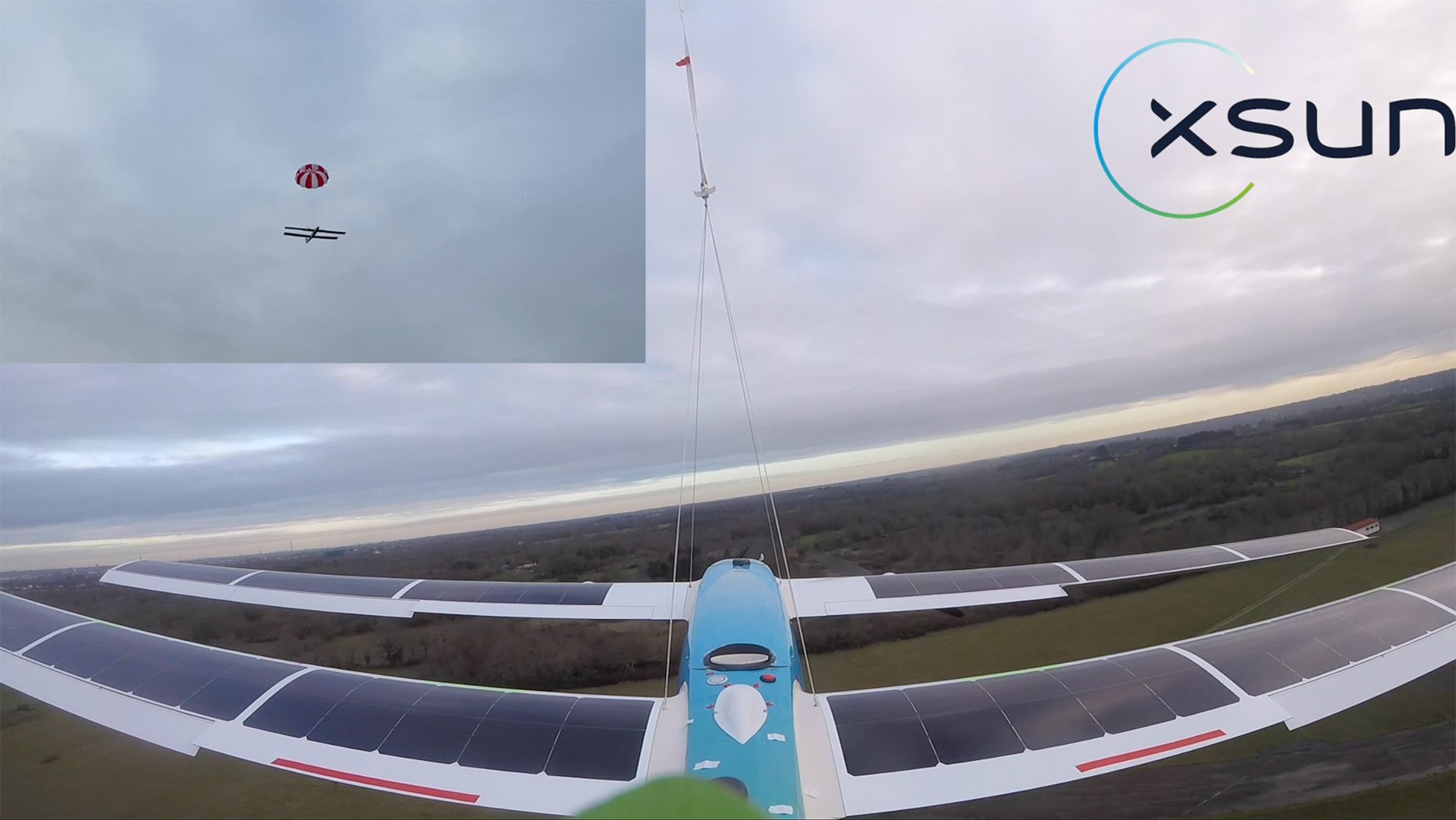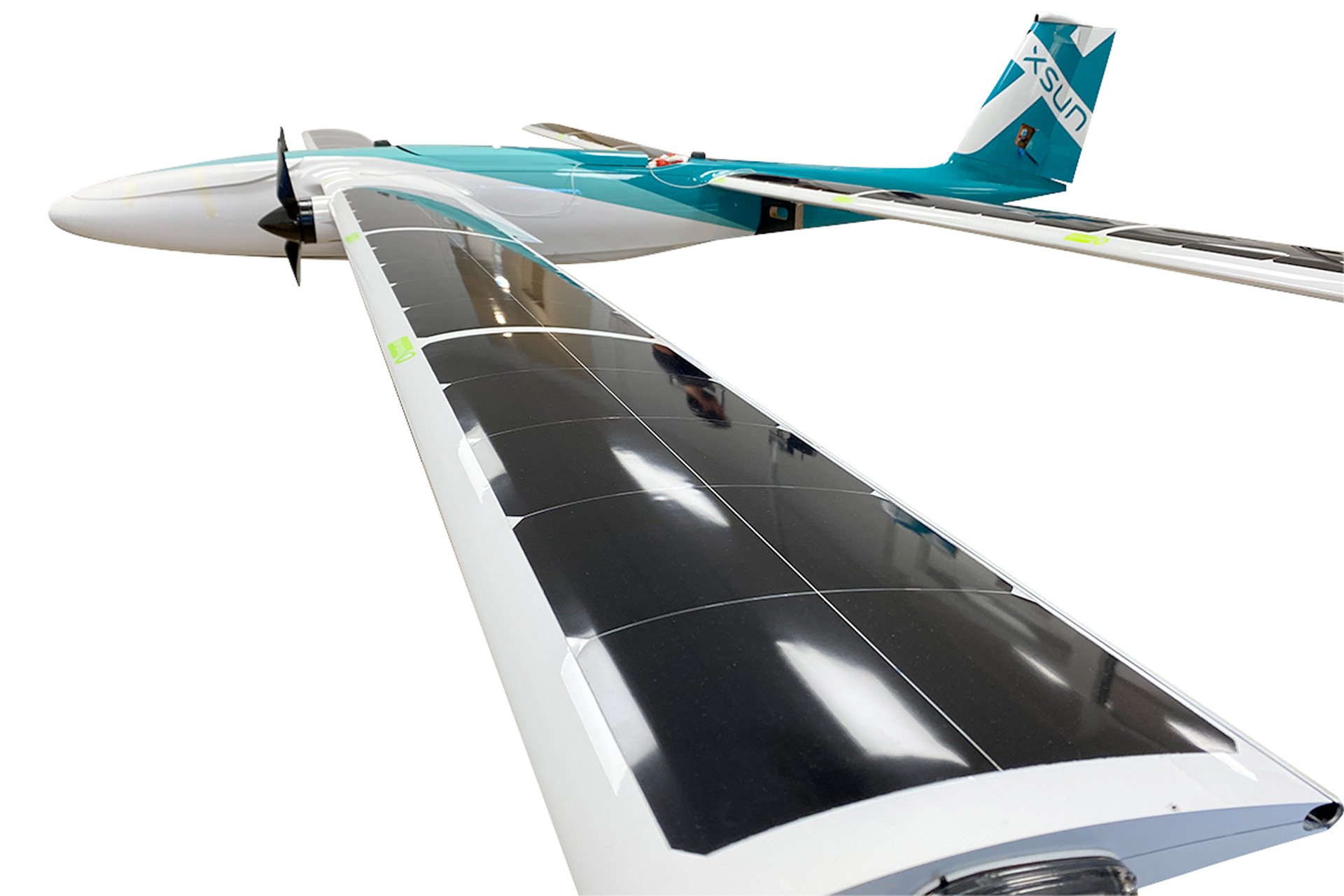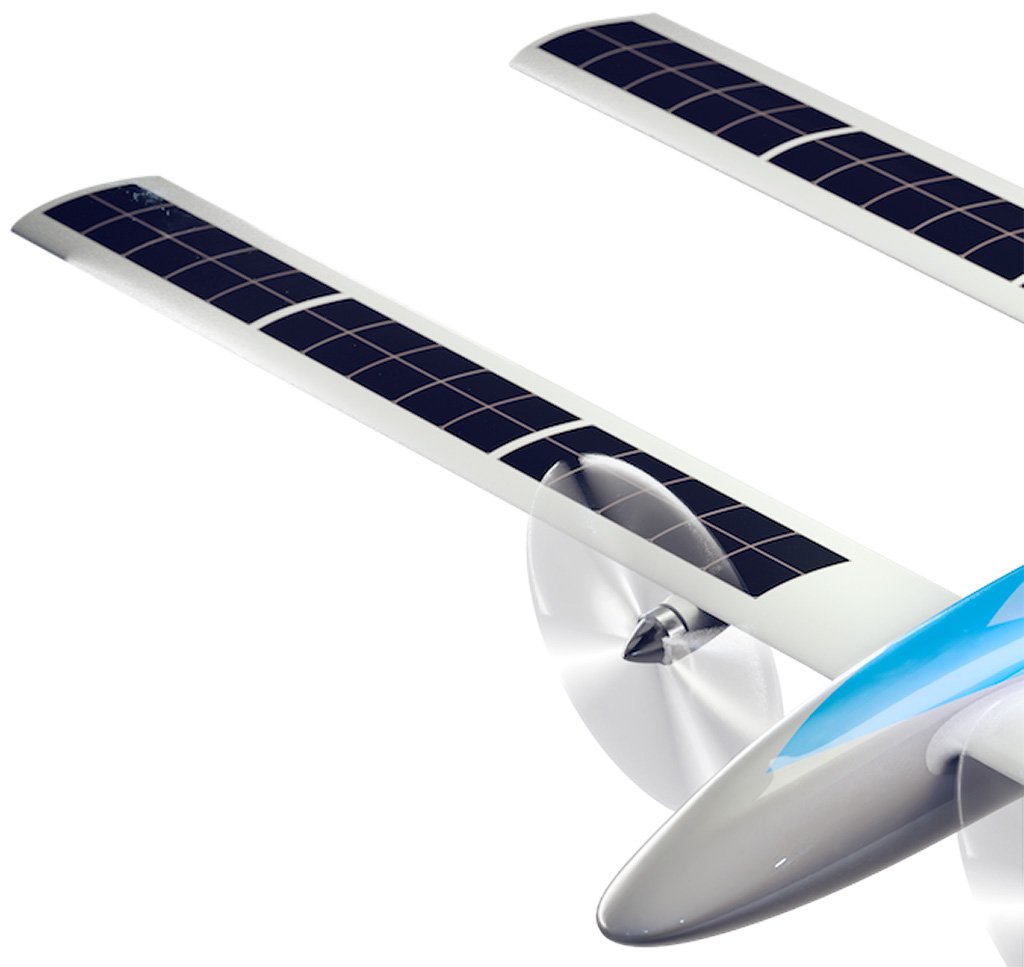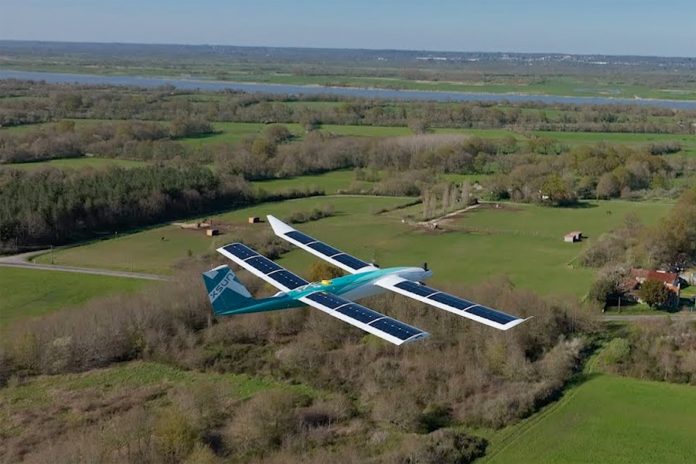Unmanned aerial vehicles (UAVs) have become an essential tool for monitoring, mapping, and data collection. The SolarXOne drone, developed by XSun, takes this capability further with its all-electric, solar-powered system that allows it to fly up to 600 km over 12 hours without emissions. Designed for Beyond Visual Line of Sight (BVLOS) operations, it integrates advanced safety, communication, and energy systems for extended and efficient aerial missions.
Fully electric with long-endurance flight
One of the key features of the SolarXOne is its extended flight duration, made possible by its dual-source power system. It combines batteries with four solar wings to ensure continuous operation, even at night. The total power output reaches 200 W, and the drone can carry up to a 4 kg payload while maintaining stable flight. This makes it suitable for applications such as environmental monitoring, infrastructure inspection, and aerial mapping.
Optimized design for efficient performance
SolarXOne features a unique, patented single tandem-wing configuration that enhances flight stability and efficiency. This stall-free design allows for low-speed take-offs and landings, reducing the ground space required for operations. Its cruise speed of 50 km/h can be adjusted depending on mission requirements. The control surfaces on each wing contribute to trajectory accuracy and additional redundancy, ensuring safe and precise flight paths.
Sustainable and silent operations
With its fully electric propulsion system, the SolarXOne significantly reduces noise pollution, producing less than 42 dB of noise at 200 meters altitude. Additionally, its solar-powered operation helps cut carbon emissions, saving up to 4 tons of CO₂ per day compared to traditional fuel-powered alternatives. These features make it well-suited for missions in sensitive environments where minimizing disturbance is crucial.
Advanced safety and certification
XSun has integrated multiple safety measures into the SolarXOne to ensure reliable operation. The drone is equipped with an ADS-B Out system, making it UTM (Unmanned Traffic Management) ready. It also includes an Electronic Flight Termination System (FTS) that can be activated manually or automatically in certain conditions. The FTS shuts down the engines, deploys a parachute, triggers flashing lights, and sounds an alarm to prevent potential hazards during emergency landings.

SolarXOne meets high regulatory standards, holding DAL-B and SORA certifications for BVLOS flight. Additionally, XSun is one of the first European companies to receive NAA (DGAC) approval to operate in non-segregated airspace. It has also obtained a Design Verification Report (DVR) from EASA (European Union Aviation Safety Agency) for its containment performance, ensuring compliance with safety regulations.
Multi-mission capability with advanced payload options
The drone is designed to support multiple payloads, allowing it to be used for a wide range of applications. It can carry high-resolution cameras such as the Phase One camera, LiDAR sensors like the Riegl VUX 120, and stabilized gimbal systems like the OCTOPUS gimbal. These payload options make it useful for mapping, surveying, and environmental monitoring tasks.

Reliable connectivity for remote operations
To maintain real-time control and data transmission, the SolarXOne is equipped with multiple communication systems, including satellite, cellular, and radio links. This ensures that operators remain connected to the drone even in remote or challenging environments, providing a secure link to the ground control system.
Fully automated flight and precise navigation
The drone features a highly advanced autopilot system that enables 100% automated flight. It includes one-click mission execution, adaptive control, and real-time positioning with RTK (Real-Time Kinematic) accuracy down to the centimeter level. Wind estimation, dual GNSS, and redundant IMU systems further enhance flight stability and precision.
XSun has incorporated the Embention Veronte autopilot system, which meets DO-178C / ED-12 and DO-254 regulations, making it one of the safest UAV autopilot systems available. This ensures reliable flight control across various missions and operating conditions.

A sustainable approach to aerial monitoring
With its long-endurance solar-powered system, silent operation, and advanced safety features, the SolarXOne offers an efficient solution for aerial monitoring without relying on fossil fuels. Its ability to save 4 tons of CO₂ per day positions it as a sustainable alternative for industries looking to reduce their environmental impact while maintaining high-performance data collection capabilities.
Source: XSun



